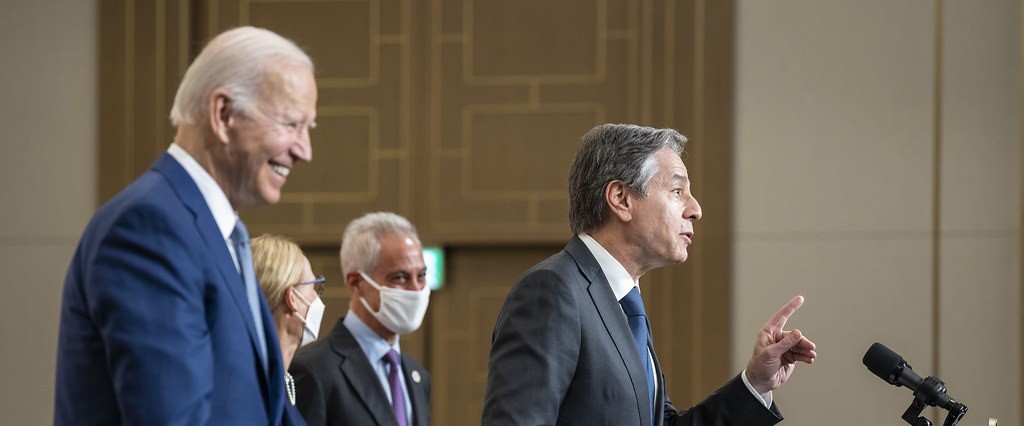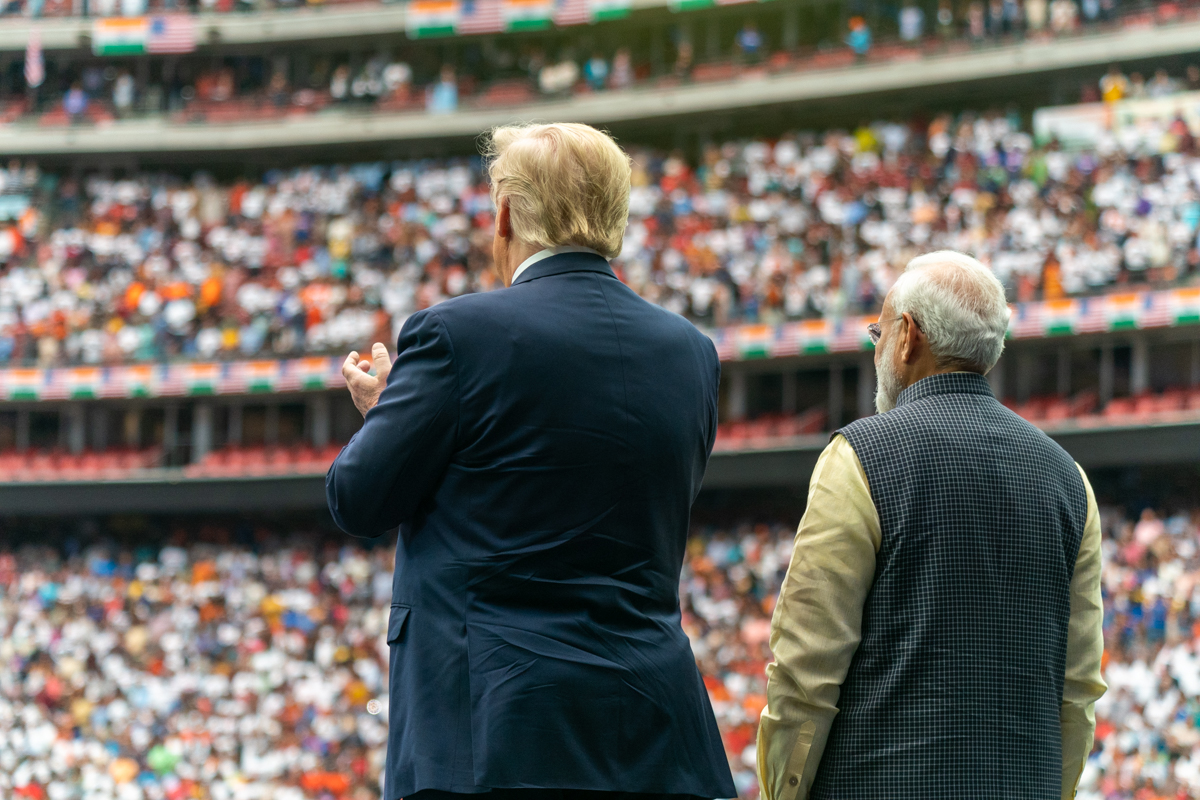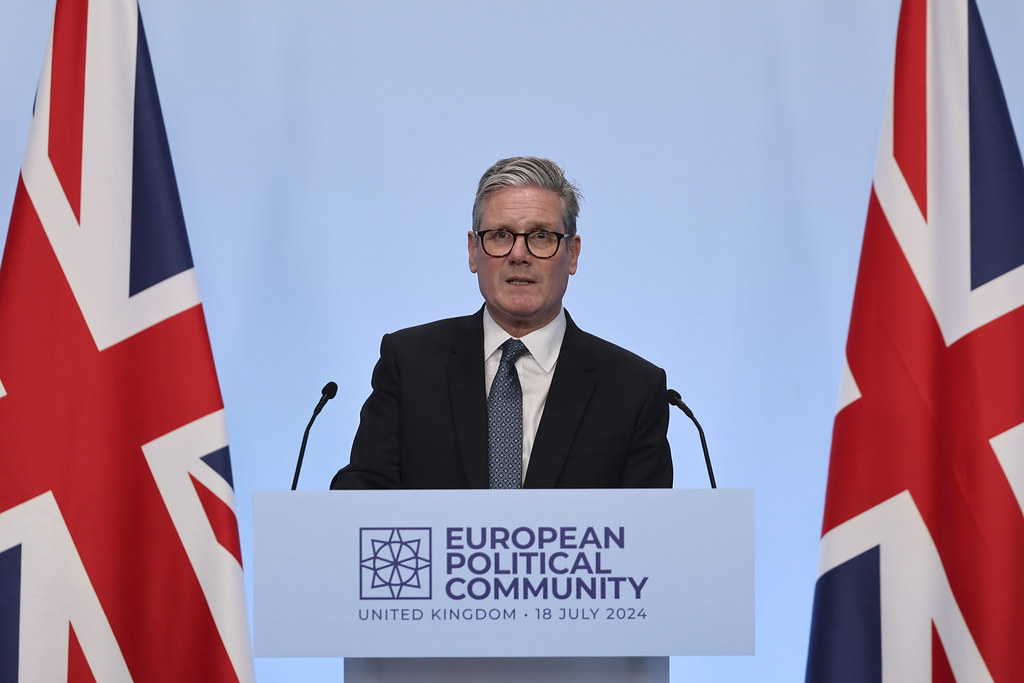US launched AUKUS, a new security partnership among Australia, Britain, and the United States….reports Asian Lite News
US National Security Advisor Jake Sullivan, Secretary of State Antony Blinken, and Secretary of Defence Lloyd Austin penned an op-ed in the Washington Post outlining how President Joe Biden’s Indo-Pacific strategy has led to a more secure and prosperous region.
The three leaders emphasized that by reinvigorating and deepening our alliances and partnerships through key initiatives such as launching AUKUS, elevating the Quad to the leader level, and hosting the historic US-Japan-ROK trilateral leaders’ summit, the United States has made the Indo-Pacific region and world safer, and the results will pay off for the American people for decades to come.
“No place on Earth is more critical to Americans’ livelihoods and futures than the Indo-Pacific,” the article read.
The region — which stretches from our Pacific coastline to the Indian Ocean — generates nearly 60 per cent of global gross domestic product. Its commerce supports more than 3 million American jobs. Much of the world’s advanced manufacturing, which helps power the US economy, happens in its factories, they added.
They highlighted that the area’s serious security challenges, including North Korea’s nuclear saber-rattling and China’s dangerous and provocative actions at sea, have effects far beyond the region.
When President Biden took office, America’s standing in this critical part of the world was at its lowest point in decades. The region was still reeling from the Covid-19 pandemic.
The US allies and partners feared that Washington had become an “unreliable friend” and an increasingly aggressive China was taking advantage of America’s turn inward to advance its alternative vision of the world — a vision hostile to US interests.
“So, President Biden instructed us to transform our approach to the region,” the leaders stated.
This transformation — and the tremendous results it has brought about — is one of the most important and least-told stories of the foreign policy strategy advanced by President Biden and Vice President Harris, they added.
First, we upgraded the old “hub and spoke” model of diplomacy with an integrated, interconnected network of partnerships.
“The United States had long had one-to-one partnerships and alliances with other Indo-Pacific countries. But much like the hub and the spokes of a wheel, those individual partnerships didn’t overlap. We have worked not just to strengthen our existing one-to-one relationships in Asia but also to bring those partners together in new and innovative ways,” the article added.
Following this, the US launched AUKUS, a new security partnership among Australia, Britain, and the United States.
The leaders emphasized how President Biden brought together Japan and South Korea — two countries with a difficult history — to join the United States in the Camp David Trilateral Summit, spurring unprecedented defence and economic cooperation among our countries.
Biden also hosted the first-ever summit between Japan and the Philippines, forging another three-way partnership with US treaty allies.
We elevated the regional grouping known as the Quad — Australia, India, Japan and the United States — to deliver hundreds of millions of lifesaving coronavirus vaccines, mobilize millions of dollars in digital infrastructure investments, and advance the global clean energy transition.
We created the Indo-Pacific Economic Framework for Prosperity with 13 other partners to ensure we are meeting the economic challenges of today and not two decades ago, such as building secure supply chains and protecting our critical technologies.
And we hosted two critical regional institutions – the Association of Southeast Asian Nations and the Pacific Islands Forum — for their first-ever summits at the White House.
“Second, we worked closely with our allies and partners to confront shared challenges together,” the leaders emphasized.
“They said no country in the world has alliances and partnerships like America’s. They magnify our strength and project our power. And they deliver results. Today, this is strikingly evident in the Indo-Pacific,” they added, while highlighting the defence transformation of different US allies.
Japan is making historic investments in defense, which will allow it to contribute far more to our alliance — and to security in the region.
South Korea has also adopted a new strategy to surge economic investment in key industries in Southeast Asia, strengthening supply chains the U.S. economy relies on.
Australia has deployed new resources to help Pacific Island nations become more resilient — both to climate change and to economic coercion from China.
The Philippines is modernizing its military capabilities and increasingly integrating them with America’s, making them more capable of standing up to bullying from China in the South China Sea.
The leaders also highlighted how due to Biden’s policy, India and the United States are investing together across the sectors that will shape the future — from semiconductors to artificial intelligence, to clean energy.
The US recently unveiled plans to modernize the command and control of US forces in Japan — the largest upgrade to US-Japanese military ties in seven decades. The defence ministers of Japan, South Korea, and the United States met together in Japan for the first time ever. They also announced a once-in-a-generation investment of USD 500 million to support the modernization of the Philippine military.
Emphasizing these developments, the leaders said that President Joe Biden has built bridges among our allies in the Indo-Pacific and Europe, while Japan and other Asian partners have stepped forward with strong support for Ukraine in the face of Russia’s aggression.
The US’ European partners are also standing together to hold China accountable for supporting Vladimir Putin’s war machine and undermining the international rules-based order.
“All this is producing historic security dividends. We’re locking arms with our allies and partners against North Korea’s destabilizing weapons programs. We’re pushing back together against China’s dangerous brinkmanship in the region’s waterways. Our security partnerships across the Indo-Pacific are more effective and more unified — which makes us and our neighbors safer and stronger,” the leaders stated in the article. (ANI)
ALSO READ: Harris, Walz attack Trump in first rally













